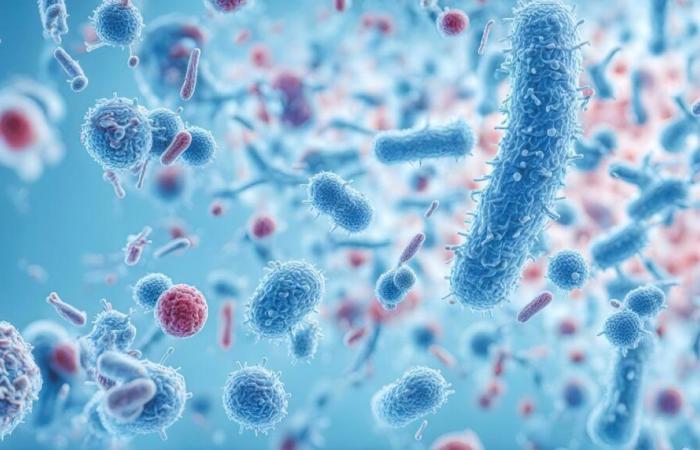
MADRID, 29 Abr. (EUROPA PRESS) –
Scientists have created a model in mice that allows to selectively eliminate viruses that infect intestinal bacteria, known as phages, without affecting the bacteria themselves.
This advance reveals that phagos could increase the sensitivity of intestinal bacteria to antibiotics, which could have important implications for the treatment of infections and microbiome balance.
A model that eliminates and restores phages without affecting bacteria
A team of experts from Virginia Tech (United States) has found a way to compare exactly the same conditions of intestinal microbioma with and without phages. Specifically, they developed a model that allows them to reduce the communities of phages of the intestinal microbioma of a mouse and then recover them without affecting bacteria.
In a proof of their model, researchers found evidence that phages can increase the sensitivity of intestinal bacteria to antibiotics. Its results are published in the magazine ‘Cell Host and Microbe’.
It should be remembered that for the bacterial species that inhabit the intestine, there is a large number of viruses called bacteriophages that infect them naturally. Although they coevolved with bacteria, phages receive much less attention. They are more difficult to classify and are so closely linked to the bacteria they attack that scientists have difficulty understanding their functions.
Fogos could increase bacterial sensitivity to antibiotics
In this new work, the Bryan Hsu biologist team of Virginia Tech and the Postgraduate student Hollyn Franklin found a way to inhibit viruses of a bacterium, but not to the bacterium itself. Thus, in his first investigations, Franklin found a chemical compound called acriflavin that met the requirements. It is a component of a widely available medication that is used in Brazil to treat urinary tract infections (ITU).
Franklin began to administer acriflavin to laboratory mice. For 12 days, a drastic reduction in the concentration of viral particles was observed. And did not recover when the administration of the drug. But when Franklin reintroduced a small sample of the intestinal microbiome of the mouse itself, extracted before treatment, the natural populations of phages returned to life. “It disappears when we want and return when we want,” says Hsu. “Which means that we have a conditional murino model to bacteriophages.”
New questions about the role of phages in human health
To see if the mouse model had any importance to health, the HSU research team was direct to one of the hottest issues in the field: the collateral damage that antibiotics have in the microbial population resident of a patient. Antibiotics save millions of lives every year, but the drug attacks indiscriminately to bad, benign and beneficial bacteria, altering our intestinal microbiome and leaving us vulnerable to new pathogens. HSU and Franklin used their mouse model to administer antibiotics to mice with and without populations of phages. Their results suggest that phages increase the sensitivity of bacteria to antibiotics. “It is difficult to draw definitive conclusions, but these results tell us that phages have some importance in how we respond to antibiotics,”
The next questions, according to Franklin, will explore if the phages caused these effects or are simply correlated with them, and what role the phages play in disease, which would open new doors in the microbiome studies.





